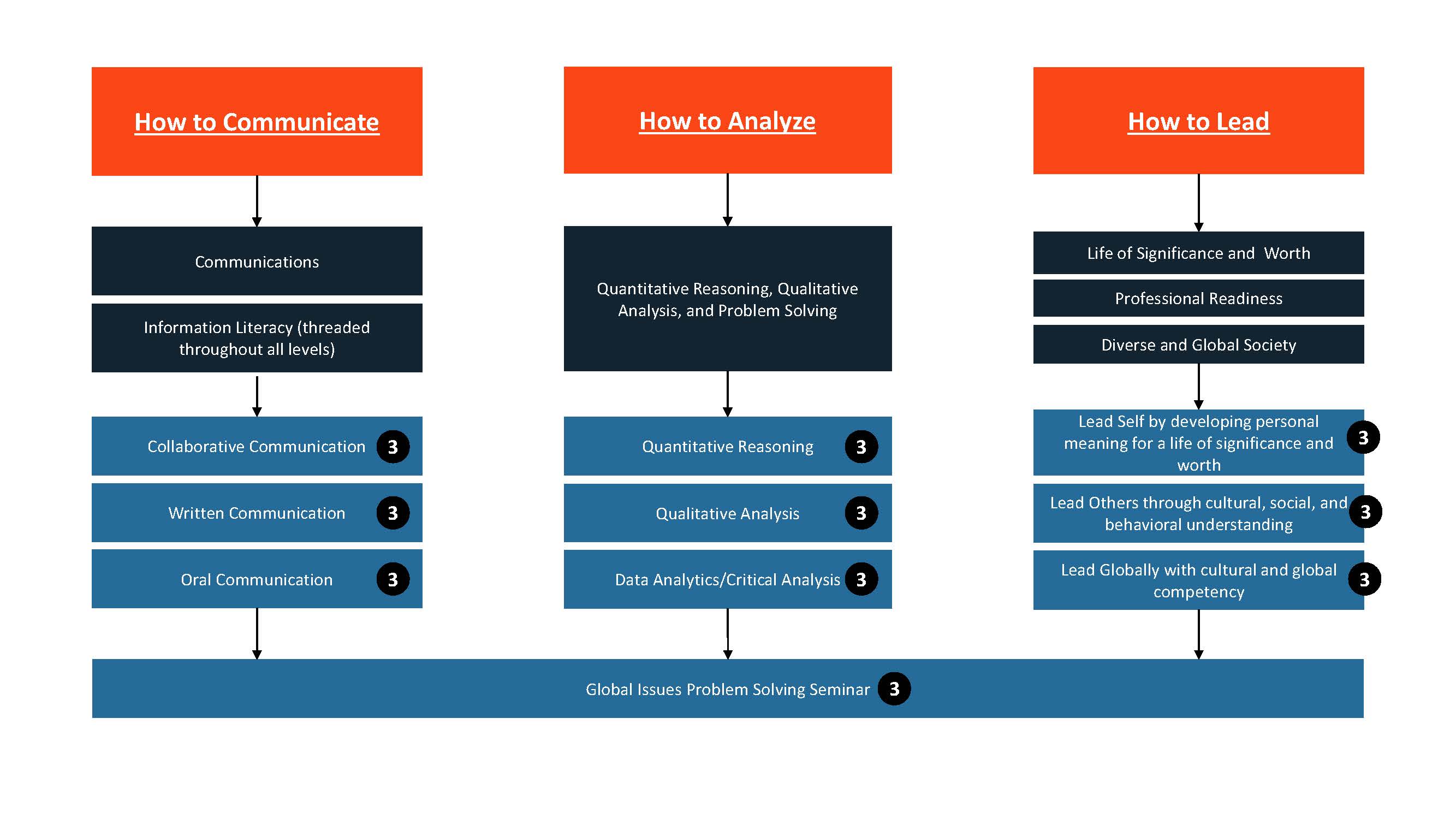|
Although Indiana Tech has historically focused its academic programs in areas that lead directly to career opportunities, the university recognizes the importance of providing students with a well-rounded education. The goal of the general education requirements is to provide students pursuing bachelor’s degrees with the skills and flexibility they will need to be successful in a rapidly changing world. The University’s core of general education courses ensures that our graduates have this solid foundation on which to build more specific professional training within the chosen major.
The general education component at Indiana Tech is organized around several desired outcomes. Many of these components are taught across the curriculum (such as critical thinking skills and creativity). However, there are also cases where specific courses can be identified which more directly aim toward fulfillment of the identified competencies. In some cases, the specific course required depends upon the degree program that the student is pursuing.
General Education Learning Outcomes
The curricula at Indiana Tech are constructed to assure that students will master the following learning outcomes:
Demonstrate effective communication:
To help students develop flexible communication strategies appropriate for professional and interpersonal contexts by undertaking speaking and writing as a process that responds to rhetorical situations.
Utilize quantitative and qualitative reasoning for problem solving:
To support career and personal advancement by demonstrating competence in mathematical problem solving and the presentation and application of data.
Demonstrate progress toward building a life of significance and worth:
To help students identify what “significance and worth” means to them and encourage meaningful engagement in diverse opportunities.
Demonstrate professional readiness:
To practice and demonstrate professional readiness skills including teamwork, applying critical feedback, self-exploration, profession-specific expectations and ethical guidelines.
Utilize information literacy:
To develop appropriate strategies for identifying problems of practice, posting generative questions, and finding, evaluating, and synthesizing information addressing authentic issues in professional and civic settings.
Engage with a diverse and global society:
To develop a global mindset and demonstrate openness, inclusiveness, sensitivity and the ability to interact respectfully regardless of background or experience.

General Education Core
***Please note, if courses are duplicated between general education and the major, approved electives increase by the number of credits duplicated.***
How to Communicate
Choose one course (at least 3 credits) from each building block:
Collaborative Communication
Written Communication
Oral Communication
Total Credits Required: 9
How to Analyze
Choose one course (at least 3 credits) from each building block:
Quantitative Reasoning
Qualitative Analysis
Data Analytics and Critical Analysis
Total Credits Required: 9
How to Lead
Choose one course (at least 3 credits) from each building block:
Lead Self
Lead Others
Lead Globally
Total Credits Required: 9
Global Issues Problem Solving Seminar
Total Credits Required: 3
Total Credits Required: 30
|
|